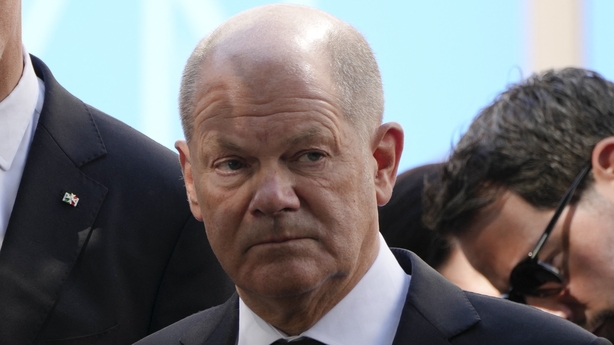The German government has insisted its move to launch border controls with its nine neighbouring countries to stop irregular migrants is in line with the EU's rules and not an attempt to go it alone.
Interior Minister Nancy Faeser said it would not take unilateral measures "that could harm the European Union", after Poland slammed the decision and the EU cautioned that border checks could only be introduced as an "exceptional" measure.
Ms Faeser announced that border controls already in place with Austria, Poland, the Czech Republic and Switzerland would be extended to the borders with France, Luxembourg, Belgium, the Netherlands and Denmark for an initial six months.
Polish Prime Minister Donald Tusk condemned the move as "unacceptable", adding that Poland would "reach out to other countries affected by Berlin's decisions for urgent consultations".
Ms Faeser's ministry said the step complied with national and European law and reflect "coordinated action within Germany as well as within the EU".

Her ministry added in a statement that "Germany continues to rely on close cooperation with its neighbouring countries, for example through joint patrols and joint police centres at the borders".
A heated political row has flared within Germany about ways to limit the entry of irregular migrants at a time of rising public anger after several deadly attacks by suspected Islamist militants.
Chancellor Olaf Scholz's coalition has come under intense pressure to address the issue, which has fuelled the political rise of the far-right Alternative for Germany party (AfD).
The conservative CDU opposition party and its Bavarian sister party have demanded far tougher steps and has walked away from a high-profile crisis "summit" on the issue with the government.
"The government is incapable of action and leaderless," charged Friedrich Merz, the CDU's likely candidate against Mr Scholz in elections a year from now.
The CDU has demanded Germany declare a national "emergency" to allow for across-the-board rejections of undocumented migrants at the border - a proposal the government has rejected.
Ms Faeser instead presented a plan under which police could temporarily detain asylum seekers already registered in other EU member states, while authorities work to speedily send them back to that country.
EU police have access to the Eurodac database that captures fingerprints and other biometric data of irregular migrants and asylum seekers.
The interior ministry said that under its proposal, German police who stop asylum seekers at the border would check Eurodac and, if the person is identified, detain them while initiating steps to speedily deport them.
Police would quickly "check whether detention capacity is available" and apply to a court for detention or to assign them to a fixed residence to "prevent the persons from going into hiding".

